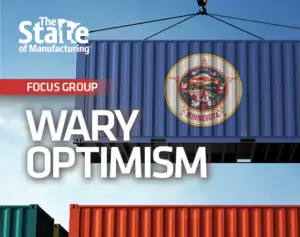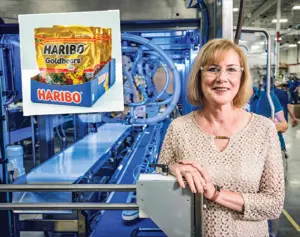A look at results from the latest State of Manufacturing® survey shows the business climate has somewhat settled down post-COVID, giving manufacturers a welcome dose of breathing room to tackle issues they might have put on the back burner in recent years.
The SOM survey data — combined with insight from focus groups — shows something we haven’t seen for a while: stability. A respite from runaway inflation, acute worker shortages and supply chain shocks could finally allow time- and resource-strained manufacturers to shift focus to growing their companies.
Thanks to the Minnesota Legislature, manufacturers now worry they won’t be able to enjoy that much-needed break. A handful of sweeping employment laws enacted during the last legislative session have manufacturing executives deeply concerned. The changes include expanded paid leave requirements; a new employer-funded paid leave program; and cannabis legalization, along with new workplace drug testing policies.
A predictable business climate allows companies to pursue growth-boosting initiatives: strategic and operational planning, staff development, ISO certification, and expansion into new markets. Now, manufacturers will need to devote time and money to implement the new administrative burdens.
Our SOM focus groups of 104 executives were acutely aware that legislators allowed no exemptions for small and tiny manufacturers who don’t have the resources to shoulder these immediate administrative burdens. Many will need to seek expensive help from outside legal or HR professionals. The changes have 76% of SOM survey respondents very or somewhat worried. That’s a strong reaction for a group who historically expresses a great deal of confidence, even in the face of historic upheaval.
Legislators seem to believe there’s a tension between business owners and their employees that can only be managed with heavy-handed and costly regulations. But the manufacturers we work with know their success depends on their employees’ satisfaction, and they constantly strive to improve work environments.
Manufacturing employees across the state work in clean, well-run, modern buildings. Jobs at these companies anchor communities with higher-than-average wages and abundant opportunities for career growth.
Manufacturers regularly work with us on strategies that improve employee engagement through talent development or that reduce repetitive and physically taxing aspects of a job through automation. When employers face costly administrative burdens and additional payroll taxes, they often delay or cancel these projects, and in some cases, make agonizing decisions to cut positions, reduce hours, or limit hiring.
A good rule of thumb, in business and in life, is to know the reaction before you take the action. If legislators had reached out to manufacturers, they might have anticipated the consequences of these laws.
To help legislators understand potential outcomes, we’re ramping up efforts to connect them to the manufacturers they represent through company tours. These visits give lawmakers a firsthand look at companies and the outstanding employees who make their products. And they offer manufacturers a chance to voice concerns about these laws.
…
Featured story in the Winter 2023 issue of Enterprise Minnesota magazine.


